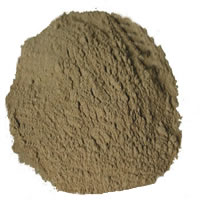Agrimony Purchase & Information

Alternative Names
Agrimonia, Agrimone, Aigremoine Eupatoire, Aigremoine, Churchsteeples, Church Steeples, Cocklebur, Cockeburr, Common Agrimony, Da Hua Long Ya Cao, Eupatoire-des-Anciens, Francormier, Fragrant Agrimony, Herbe-de-Saint-Guillaume, Herba Agrimoniae, Herbe de Sainte Madeleine, Philanthropos, Sticklewort, Soubeirette, Thé du Nord, Thé des Bois, Toute-Bonne CAUTION: Please refer to separate listings for Potentilla, Liverwort and Hemp Agrimony.
Scientific Name
Agrimonia Eupatoria
Why Do People Use Agrimony?
Orally, agrimony powder is utilized the upset stomach, throat infections, irritable bowel syndrome (IBS), mild diarrhea, gallbladder disorders, diabetes, bleeding, tuberculosis, corns, as a gargle, warts, antitumor agent, diuretic, cardiotonic, sedative and antihistamine.
Topically, Agrimonia eupatoria (agrimony) is utilized as an astringent for the treatment of mild of moderate infections of the skin. The ethanolic concentrates of agrimony are utilized due to their antiviral characteristics.
Is It Safe To Use?
Possibly Safe - Agrimony powder is safe as long as it used as an oral medicine in the given dose and for an appropriate period of time.
Possibly unsafe - Agrimonia eupatoria becomes unsafe when used in higher doses or for longer period of time due to its tannin contents.
Pregnancy and Lactation - It is possibly unsafe in such conditions when utilized orally due to its possible impacts on the menstrual cycle.
How Effective Is Agrimony?
Scare reliable information is available regarding he effectiveness of antimony powder.
How Agrimony Works?
The appropriate parts of Agrimonia eupatoria are the dried seeds and plant parts growing above the ground. The aeronautical plant parts contain 4%-10% dense tannins that can be responsible its astringent properties. The aerial parts of agrimony likewise contain terpenoids, flavonoids, coumarins and phenolic acids.
As a result of the astringent properties of agrimony and tannin substance, it is thought to be useful for gastrointestinal conditions, for example, diarrhea.
Concentrates of agrimony seeds have antioxidant activity in vitro and slight antibacterial potential. In animal models of diabetes, agrimony powder diminishes base line level of glucose and polydipsia. Agrimonia eupatoria is thought to potentiate glucose uptake and change it to glycogen by enhancing insulin emission.
What Are The Side Effects /Adverse Reactions of Agrimony?
Not known.
How Agrimony Interacts With Other Herbs and Supplements?
Antidiabetes Drugs - The interaction of agrimony powder with antidiabteic drugs is of moderate nature. Monitor blood sugar level deeply because of claims that Agrimonia eupatoria has hypoglycemic impacts.
How Agrimony Interacts With Drugs?
Not known.
How Agrimony Interacts With Foods?
Not known.
How Agrimony Interacts With Lab Tests?
Not known.
How Agrimony Interacts With Diseases and Conditions?
Surgery
Agrimony powder may have impacts on blood glucose levels. Agrimonia eupatoria may also alter blood glucose control after and during surgical processes. Ask patient to stop agrimony intake for minimum two weeks before selective surgical procedures.
What Should Be the Dose/Administration of Agrimony?
Oral
No average dosage. Customarily, a dose of 3 grams per day is utilized.
Topical
No average dosage. Customarily, a poultice is regularly applied a few times a day utilizing nearly 10% water extract, which is arranged by boiling the herb at minimum heat for 10-20 minutes.
Comments
None.
General Certificate of Analysis (COA)
Specification sheet links below are a standard copy of the COA less the batch or lot number and manufactures dates. Specification sheet can be dated and should only be considered as a general information. Please contact and request an up to date COA if needed for specific updated information before placing order by filling out the contact form with product name and SKU number. If ordering quantities of twenty five kilos or more contact for availability.
